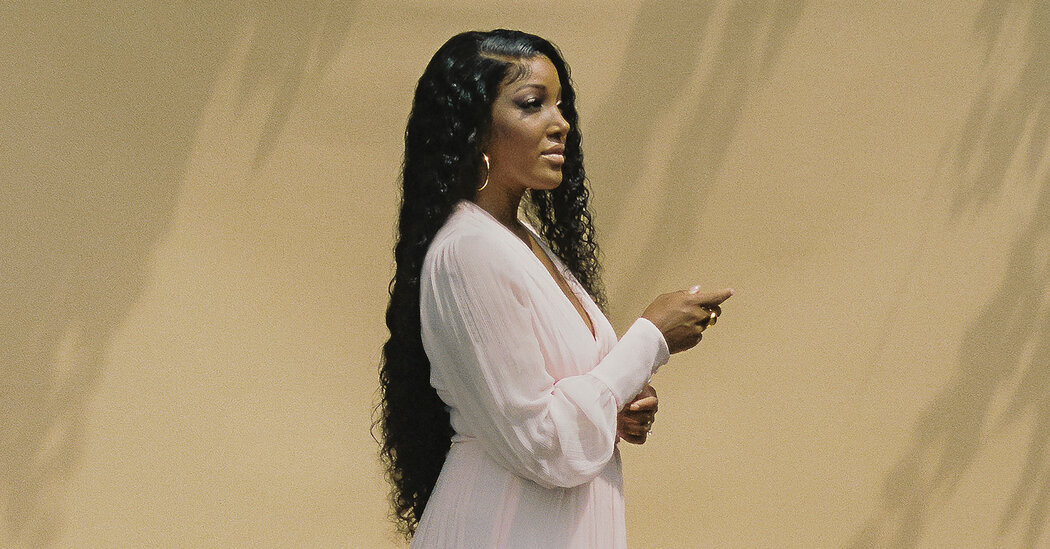
Online, Guyton routinely fends off slur-filled missives from retrograde country fans who bristle at her claim to the genre or at her willingness to call out racism in its ranks.
“I’m on antidepressants because it’s been that hard,” she said.
That context renders the specific achievements of Guyton’s debut album even more remarkable. Though it tackles some deeply scarred subject matter, “Remember Her Name” is, at heart, a fundamentally optimistic album, from its resolute lyrical stands on decency and empathy to its production, which is often reminiscent of the majestic, big-tent country music of the 1990s.
“Big always feels comfortable for me,” Guyton said. “I was always thinking about the big ’90s country, that throwback.” Laughing, she added, “I even have a French tip manicure.”
The inheritances from big-voiced, emotionally colorful singers like Martina McBride are clear on songs like the inspirational “Higher,” the vivid cover of Beyoncé’s “If I Were a Boy” and on the title track, which plays like a superhero theme song. “Different” bridges pop brightness with off-the-cuff honky-tonk swagger. And “Rosé” is an utterly modern anthem about something to drink that’s not beer, and is also, Guyton said, a protest against the unspoken Nashville prohibition on women from singing about alcohol.
“There’s so much on this record that is so positive, that is so inclusive,” Guyton said about balancing songs drawn from her personal experience with those tackling broader themes. “It took them hearing ‘Black Like Me’ and ‘What Are You Gonna Tell Her?’ to be like, ‘Oh.’ I’ve been here all along. I’m still writing positive, inclusive songs. You guys just never heard them.”
Getting people to hear these songs is the next challenge. Country radio, especially, has consistently been a space of disappointment for female performers, even in the wake of the “tomato” kerfuffle of 2015, where a male radio consultant said women artists should be sparingly sprinkled in the country airwaves’ salad. But that obstacle has led to new opportunities for singers like Kacey Musgraves, Brandi Carlile and Maren Morris, who have built their fan bases outside of the usual pathways, and with fewer concessions. Which means that even though Guyton’s refreshing approach to country might not be in line with what currently clogs the genre’s charts, the possibility of creating a new pathway is more viable than ever.



